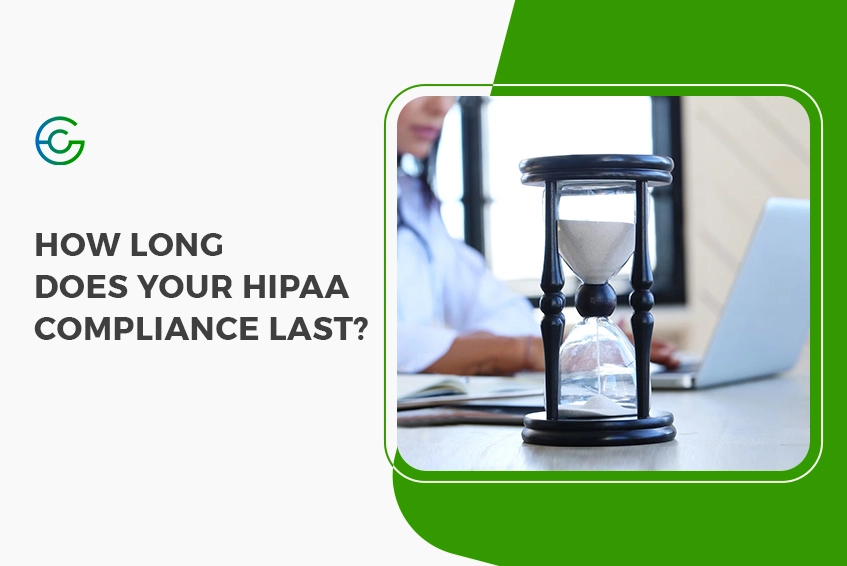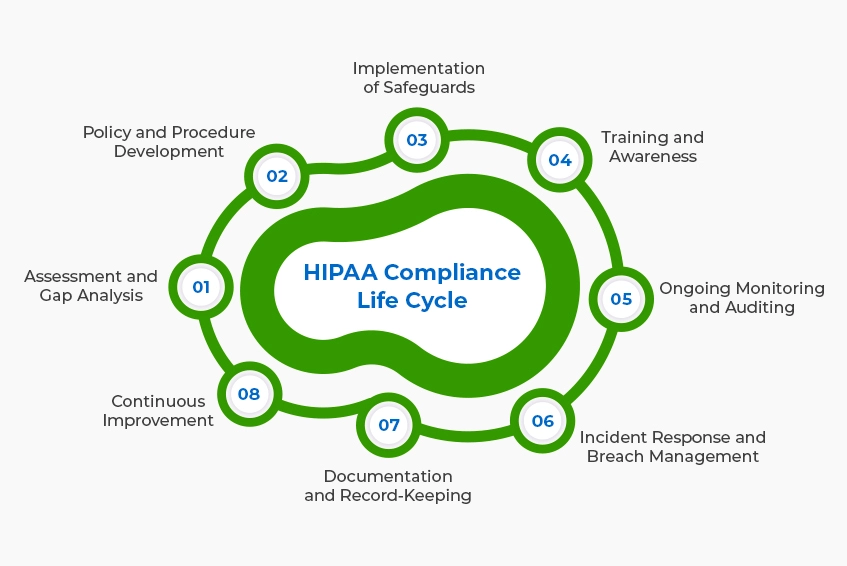
The Health Insurance Portability and Accountability Act (HIPAA) is a crucial healthcare law. It was originally enacted in 1996, and its importance continues today.
HIPAA compliance is a critical concern for many. Healthcare facilities and related businesses must follow all mandates.
Click here for more on who needs to follow HIPAA compliance. Another piece outlines why it is important.
“How long does your HIPAA compliance last?” is a frequently asked question. Compliance with HIPAA regulations is an ongoing effort. It requires long-term commitment and dedication for all in the healthcare industry.
Healthcare stakeholders must continuously adapt, monitor, and update policies, procedures, and safeguards. They must accommodate evolving regulations, trends, and information security threats in the industry.
This article explores the dynamic nature of HIPAA compliance. We shed light on the factors that affect the duration of compliance efforts.
After all, the cost of HIPAA compliance continues throughout your company’s lifetime.
Is There Any Set Timeframe for HIPAA Compliance?
HIPAA does not specify any set timeframe for healthcare players and their partners to achieve and maintain compliance. It embodies continued effort. All covered healthcare providers must continuously adhere to HIPAA compliance for as long as they operate. In other words, they must ensure the privacy and security of protected health information (PHI).
Here is what the HIPAA compliance life cycle looks like:
HIPAA Compliance Life Cycle: Exploring the Stages

The HIPAA compliance life cycle involves multiple stages.
The implementation and duration of each stage vary, as it depends on the organization's size, process intricacies, and resources.
Assessment and Gap Analysis
To identify gaps in HIPAA compliance, healthcare organizations must assess their current practices, administrative controls, and policies. This involves tracking security vulnerabilities and threats to data privacy via risk analysis.
Policy and Procedure Development
This stage picks up from the previous one.
For continued HIPAA compliance now and in the future, healthcare organizations must continuously develop and refine their HIPAA adherence policies and procedures.
This includes establishing and reviewing privacy and security policies. They must govern the use and disclosure of all patient information.
The nuances of this stage depend on the organization’s specific needs. It also entails data access, employee training, incident response, and breach notification.
Implementation of Safeguards
Administrative, physical, and technical safeguards must be in place to protect data privacy. In this regard, a privacy and security officer can also be assigned.
Physical safeguards include securing physical access to protected patient information. Access controls, video surveillance, and secure storage—related to administrative and technical safeguards—are also critical.
Adopting new technologies and advanced measures can help protect patient data. Think encryption, firewalls, and audit controls, to name a few.
Training and Awareness
Healthcare establishments must train all employees on HIPAA regulations via regular training sessions and awareness programs. It educates employees about their responsibilities in protecting patient data.
The training covers topics such as securely handling sensitive information and identifying and reporting security incidents. It also entails understanding breach notification processes.
Ongoing Monitoring and Auditing
HIPAA compliance is not a set-and-forget affair. Healthcare organizations must regularly check and audit their systems and processes. This ensures ongoing compliance.
This stage includes conducting periodic risk assessments and performing vulnerability scans. Monitoring access logs and reviewing instances of security breaches are also crucial. After all, it is a good way to identify and address any emerging risks.
Healthcare organizations must also implement necessary updates or improvements. It helps show a proactive approach to compliance.
Incident Response and Breach Management
HIPAA compliance enables organization-wide readiness during a security incident or breach. It helps organizations establish procedures to detect, respond to, and mitigate security incidents.
In the aftermath of a breach, HIPAA mandates organizations to investigate the incident after following breach notification processes.
Documentation and Record-Keeping
This is crucial throughout the HIPAA compliance life cycle. Organizations must maintain accurate and up-to-date documentation of all policies. They must file all procedures, risk assessments, training records, and incident reports.
These serve as evidence of compliance efforts. They are crucial in demonstrating compliance during audits or investigations.
“How long does HIPAA require records to be kept?” is a common question. HIPAA's Privacy Rule has a timeline for this. Covered entities must keep records for at least six years. It begins from the date of their creation or the date they were last in effect, whichever is later.
Continuous Improvement
This stage marks the "ongoing effort” factor of HIPAA compliance. It requires healthcare organizations to review and update their compliance programs based on regulations, technology, organizational structure, and emerging risks.
Long-Term Strategies for Sustaining HIPAA Compliance

How long does your HIPAA compliance last? As long as the healthcare facility is operational.
Sustaining HIPAA compliance in the long term is a continual effort. These include the following:
- Providing regular training to employees. All stakeholders must be informed about HIPAA regulations and their responsibilities related to them.
- Conducting continuous risk assessments to identify vulnerabilities and leverage safeguards.
- Maintaining comprehensive policies and procedures in alignment with HIPAA regulations.
- Establishing monitoring and auditing mechanisms to track compliance and address unexpected issues.
- Developing and reviewing incident response plans. This includes preparing for security incidents or breaches.
- Using effective vendor management practices to ensure compliance among third-party service providers.
- Obtaining executive support and accountability, fostering a compliance-focused culture.
Unlock HIPAA Compliant Medical Billing With ClaimGenix
Sustaining HIPAA compliance is an ongoing commitment. It requires proactive strategies and a steadfast dedication to protecting patient information.
To this end, ClaimGenix is a comprehensive and HIPAA-compliant medical billing solution. It offers an integrated approach to streamline billing processes while ensuring data privacy and security.
By leveraging ClaimGenix, healthcare providers can focus on delivering exceptional care without worries about aligning with HIPAA requirements.
With a seamless interface, ClaimGenix simplifies billing operations. It also reduces administrative burdens and enhances process efficiency.
Book a demo with ClaimGenix today.

